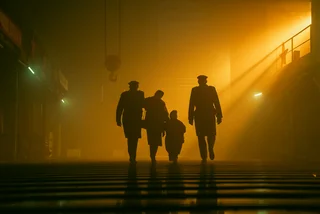Controversial people walk all paths of life and accompany us throughout our entire lives. Some are controversial due to their professions, others due to their artistic talent, while some simply by their appearance. Whatever it is that makes them controversial, there is one fact that all share: public perception of them is often varied and sometimes, almost equally split between those that respect and adore them and those that despise them. Let’s have a look at eight of some of the more visible uncrowned Czech princes of controversy.
Daniel Landa
Daniel Landa is perhaps the most controversial musician in the Czech Republic. After graduating from the Pražská konzervatoř (Prague Music Conservatory), he first became known for his music with the band Orlík! (1990-1991). Much of his initial music with Orlík! has been deemed homophobic and racist by many, despite it topping the Czech pop charts in the early 1990s (see lyrics below). When the band split, Landa began a solo career. His shaved head, bomber jacket, and leather boots along with his perceived dislike of immigrants and the Roma community, have earned him the disputable stamp of a neo-nazi.
In 2005, Landa set up the Ordo Lumen Templi, which has been associated by many with the Nazi order of Ordo Novi Templi. Landa has denied all such charges. Despite these fallbacks, he has evolved into one of the Czech Republic’s most successful musicians, leaving behind 17 albums to date. He now dedicates most of his time on musical production with his wife Mirjam Müller, as well as rally racing. His musicals are generally considered amongst the most popular, and people’s views of him are and most likely will remain highly polarized.
Selection from Landa’s highly controversial lyrics with Orlík!:
Nic ve zlým proti turistům, – Nothing against tourists,
když se sem chtěj podívat, – when they want to sightsee,
jenže není možný tady žít a taky pracovat. – but not for them to live and work here.
Co to bylo za ránu, – What was that bang,
kdo nám to sem z palmy spad, – who fell down from the palm tree,
černý oči, černý tělo to není můj kamarád. – black eyes, black body, that’s not my friend.
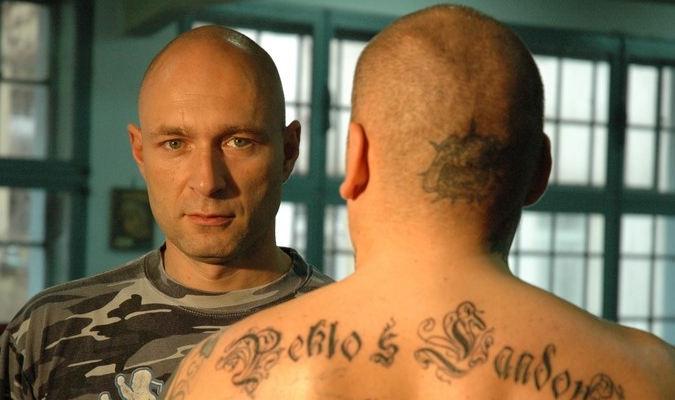
Václav Klaus
Václav Klaus is one name which will certainly not go unnoticed. As his public awareness skyrocketed in the post-communist Czechoslovakia, he became known for founding and heading the Civic Democratic Party (the ODS) and later as serving as the Prime Minister during the presidency of Václav Havel. Klaus, a graduated economist, has evolved into a career politician who eventually became the second (acting) president of Czech Republic. He has always been seen as a contrasting figure to Václav Havel. Their views often differed considerably. While Havel was largely humble, gentle, and liked by the masses, Klaus made many enemies, largely due to his controversial opinions and his public appearance. Among some of the clash points are his anti-European Union stance, his disbelief in the concept of Global Warming, and lastly, his perceived arrogance and self-confidence. Many, however, consider this to be a strength, and see him as someone who is worthy of his presidential seat, and willing and able to go against the majority – which includes the European Union. Some refer to him as the Margaret Thatcher of the EU. Václav Klaus has made numerous enemies in the political circles as well as in the public, but equally so, has gained many staunch supporters and fans.
On a lighter note, Klaus has recently been ridiculed by Czech TV for the following pen-stealing incident in Chile, which circulated globally:
Zdeněk Bakala
Ranked at #683 on the Forbes Billionaires list (March 2012), Zdeněk Bakala is undoubtedly going to stir varying opinions and controversy for his wealth alone. He moved to the USA at the age of 19, studied at Berkeley and then returned to the Czech Republic. In 1994, he founded Patria Finance, which he then sold to KBC in 2000, followed by purchasing Karbon Invest in 2004, therefore taking control of Ostravsko-karvinské doly (OKD) and Českomoravské doly, gaining control of some 45,000 flats as well as establishing a defacto mining empire. His initial promise to sell these flats to their residents never materialized, and ownership has been retained by Bakala. Naturally, this is very controversial and was denounced by courts in 2012.
Further criticism center around him owning much of Ekonomia, the publisher of Hospodářské noviny and Respekt, which have considerable media impact. His opponents point to him misusing his media power, and for having too much control. On the other hand, he has invested heavily in public projects, artistic endeavors, and multiple developments across the entire Czech Republic, and is undoubtedly in control of businesses that provide thousands of employment positions as well as opportunities. Finally, he does invest in charitable projects and runs the Zdeněk Bakala Fund, which aims at helping talented and motivated students in studying at some of the World’s most renowned universities. He also funds the Respekt Institut, Bílá Lilie, and commits considerable finance to DOX. As a result, he is therefore seen by many as a generous philanthropist.
Andrej Babiš
Although originally Slovak, Babiš is a Czech citizen and the third richest person in the Czech Republic. With experience in foreign trade, Babiš was well travelled (Paris, Ethiopia and Switzerland) and joined the KSČ (Communist Party) in 1980 and PZO Petrimex following his graduation with honors. His later assignment was as a group representative of 15 Czech companies trading in Morocco. Following the Velvet Revolution, he returned back to PZO Petrimex and was in charge of the import of fertilizers. In 1992, when it became apparent that a split of Czechoslovakia was apparent, he formed Agrofert, and with the help of Swiss and American investments (Citibank), he formed solid foundations of his largest asset. Agrofert, his holding company, now includes some 200 or so companies, generally involving the agricultural or food industries.
Babiš was in contact with the communist secret service (StB), and has been proven to have been included in the StB agent lists. He denies this to this day, although accepting that he had been interrogated by the StB in the past. Babiš, due to his fantastic wealth, is considered by many as someone who has misused the system and built an agricultural and foods empire which some see as exploiting farmers. Babiš owns, among other companies, the 5+2 weekly publication distributed in the millions, the Delta Bakery, Kostelecké uzeniny, and many other famous brands. He also invests in art. His latest purchase and sponsorship involves David Černý’s double-decker bus statue erected for the London 2012 Olympics. His latest political ambitions involve the Ano! 2011 Initiative, through which he aims to fight corruption and misuse of political power. Many consider him to be someone who is unlikely to succumb to corruption and political pressure as he is already financially independent.
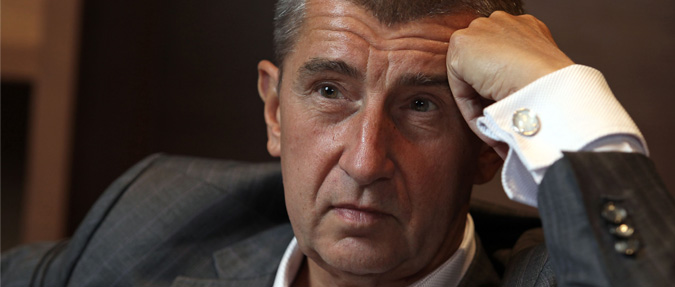
Miloš Zeman
When one hears this name, many notable moments come to mind. Miloš Zeman is a political veteran who is undoubtedly an important figure in Czech Political history and a respected economist. He has been forever bound with the ČSSD party, served as Prime Minister, and was associated with many of the post-1993 political developments. He is known to be very intelligent, but criticized by many for his slow style of speech, his love for alcohol (Becherovka) and tobacco, his often dark humor, and for his strong dislike for journalists and much of the media. He has been considered very harsh and arrogant at times, and not very diplomatic on many occasions. He is often very direct and not afraid to accuse and challenge.
On the other hand, others like him for his wide knowledge base, logical thinking, and prognostic talents. Like many politicians, he would be considered as someone who is ether despised or loved. While he headed the ČSSD party from 1993 – 2001, he built it into one of the strongest political forces in the country. When he left politics in 2003 following a failed presidential campaign, he disappeared from public view and has been known for enjoying his beloved cigarettes and alcohol. He has since returned to politics and is now one of the strongest presidential candidates to dethrone Václav Klaus, who much like Zeman, many despise. The latest polls place him at over 20% of the potential presidential vote, trailing slightly behind Jan Fischer.
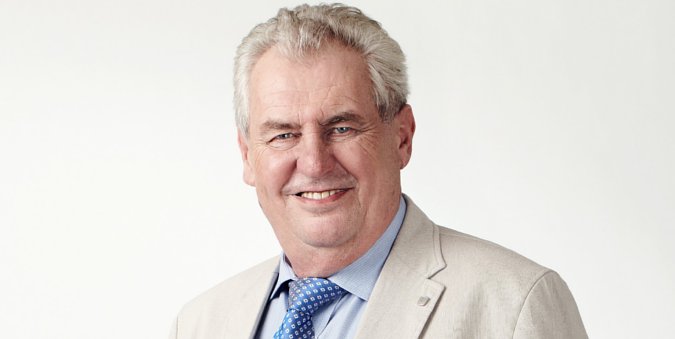
David Rath
David Rath (MUDr. David Rath) is perhaps one of the most controversial politicians (and doctors) in recent political history. He gained his medical degree at the Charles University in Prague, had a medical practice, was a medical advisor and is the executive director of two companies. His practice license has been disputed multiple times, an accusation he objected to vehemently. From 2003 until May 2012, he acted as the regional county representative of the Central Bohemian Region. He also held the position as the Minister of Health. He is sharp spoken and, much like Zeman, has a distinct speech and style. He has been most associated with an incident which occurred in 2006, where Miroslav Macek, following a comment from Rath, publicly slapped him for what he says was a direct insult against him. He is also associated with his opposition against medical fees which now apply for doctor visits and receipts. However, the most recent scandal that cost him his political career and his already tainted reputation was a corruption scandal: he was caught red-handed when receiving and subsequently carrying a wine case with 7 million CZK in bribes.
In Hostivice, however, he has been credited and liked for bringing in government funds and EU money to rebuild roads, buildings, and overall infrastructure. He is still jailed and is unlikely to return to normal life anytime soon.
Following this scandal, an interesting travel agency was established, which would follow Rath’s corruption trail, among others: http://corrupttour.com/
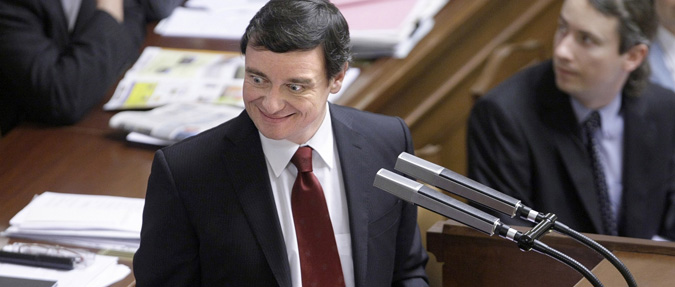
David Černý
David Černý began his life in the spotlight in 1991 when he, along with his friends, painted a Soviet tank in Prague pink. With the Czech Republic’s EU presidency in 2009, he became known for the piece Entropa, which represented highly controversial stereotypes of various EU and non-EU countries. He was granted funding on the premise of it being a cooperation project with 27 EU artists (all made up – including their websites), while it was something he made by himself. His fans loved it, while many critics despised it. Essentially, David Černý became known for producing art and statues that are remembered.
Perhaps the most well-known of his works are the famous Tower Babies on the Žižkovská věž (Žižkov Tower). In the pasáž Lucerna (Lucerna passage), his Svatý Václav on horse statue adaptation is in sharp contrast with the original on Václavské náměstí (Wenceslas Square). Many consider this to be insulting and insensitive to the importance the statue holds, while others enjoy the creativity and controversy sparked by his work. There is no doubt that David Černý has built a strong following, but also also a strong opposition. With time, however, people have come to consider his art as an integral part of Prague’s art scene and architecture. Only time will uncover further controversies by this talented artist. For more info, click here.
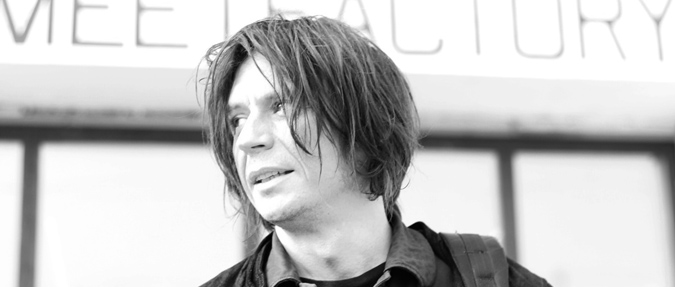
Vladimír Franz
Vladimír Franz is yet another recently highly controversial person. Unlike most of those discussed beforehand, he is not controversial for his actions, but more so because of his frightening, striking, and in a way, fascinating appearance: tattoos cover his entire body, and he is credited with being Czech Republic’s most tattooed-up man. His only untouched skin is that on his palms. The latest wave of media attention has been sparked by the announcement that he will run for President in the upcoming 2013 presidential elections.
Despite his appearance, Franz holds a doctorate in law and is a professor at Prague’s AMU Theater Faculty, as well as being a known artist and music composer. There is a major division between those who respect him for his achievements and skills and those who, despite his talents, consider him an unsuitable candidate for presidency. Many point to the fact that, with such an appearance, he would not be a fair representation of the Czech Republic abroad; others point to him as someone who would raise awareness and attract interest – essentially breaking many of the established taboos.
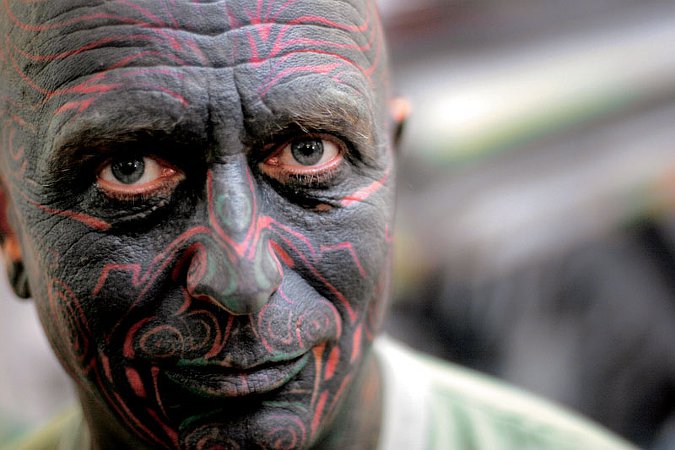
Who do you consider the most controversial person in the Czech Republic?
Related articles












 Reading time: 9 minutes
Reading time: 9 minutes 








